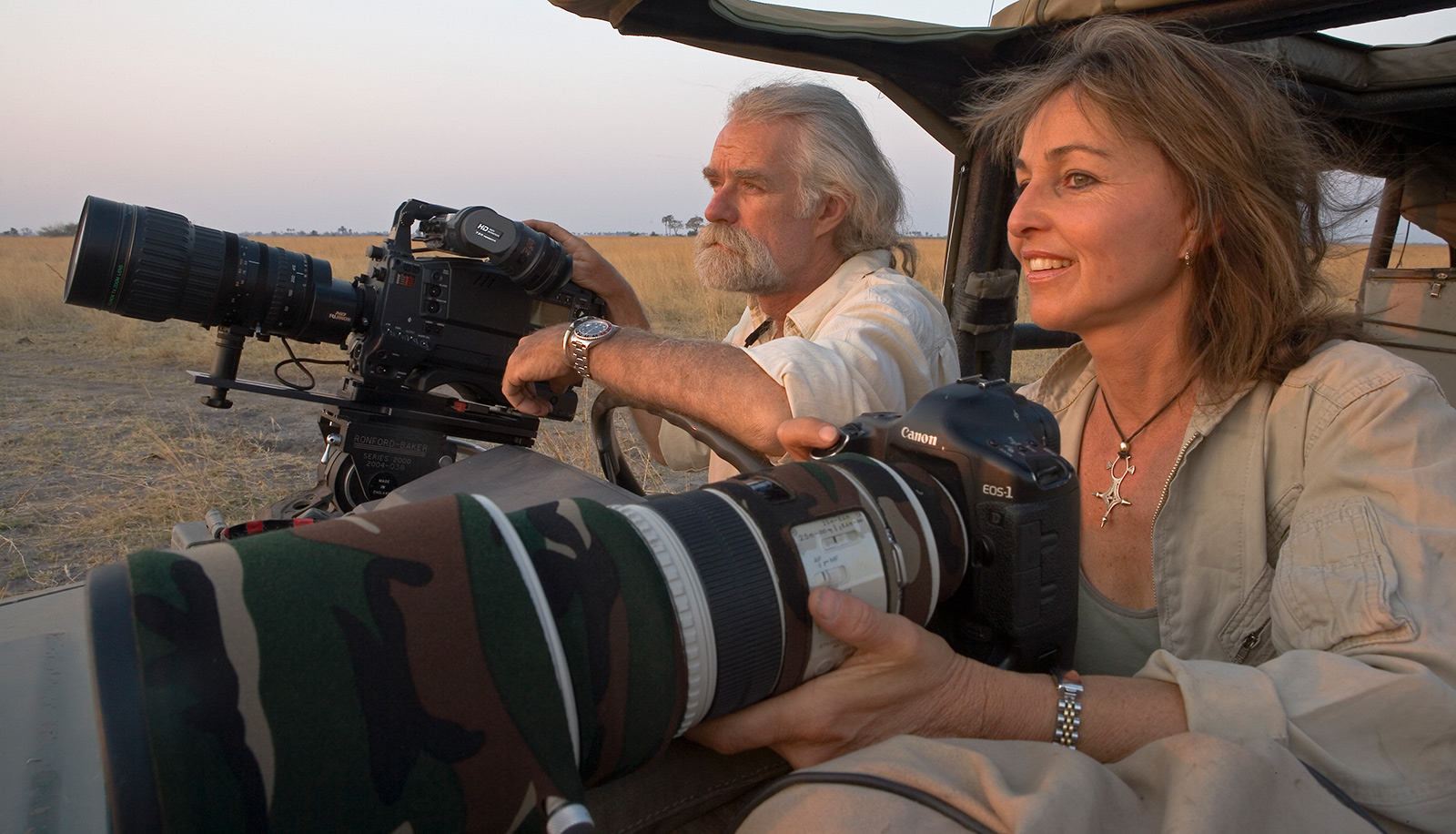Beverly Joubert

Beverly Joubert is an icon in the field of wildlife photography. Her photographs, films, and books have touched the hearts of millions, won numerous awards, including eight Emmys and a Peabody. She is a regular contributor to National Geographic magazine, where she is an Explorer-in-Residence. Born in South Africa, she picked up a camera as a teenager and began to document the wilderness that surrounded her. With her husband, filmmaker Dereck Joubert, she went on to create a life, she says, that “was all about exploring.” A life that enabled them to share, not just their time, but their passion for wildlife in Africa.
Q & A
You work mostly in the Okavango Delta, in Botswana. Give us a picture of your daily life.
The Okavango Delta is a vast waterway with islands in between. We live in a tented camp. We cook on an open fire or on gas. We shower under the stars. We spend about 16 to 18 hours a day in our vehicle. Our vehicle becomes our home.
Our daily routine is to get up really early in the morning in the dark, and cross a major river. We don’t have doors on the vehicle so as we cross the water tends to seep in. In the summer months it’s fine. But in the winter months it will be up to chest height.
Our job is all about searching and waiting. You have to be ready. It is nature. There is no way you can direct the situation. There’s no setting up for portraits or lights. Every day feels like a treasure hunt. The day begins with the beautiful glow before sunrise. Then we start searching for lions.
In an age of climate change, war, and global poverty, why should we care about Africa’s big cats?
I believe that everything is interconnected. We are just another animal species. So, if we don’t care about them, how are we going to care about ourselves and this planet? If you look at African wilderness as a large puzzle, when you take away lions or any of the predators that keep core environments alive and in balance, slowly areas collapse.
It’s also important spiritually to know that there are these majestic beasts out there. Too often humanity is divorced from nature and when that happens we have a world that is sterile. If we don’t protect each and every living creature out there and the forests and oceans, we are ultimately killing ourselves.
What inspires you?
The ultimate inspiration is about trying to make a difference. My work is about getting the observer to care deeply about the species I am portraying and their future, particularly the big cats. In a 50-year period, in the time that I’ve been alive, we have lost 95 per cent of the big cats: lions, leopards, cheetahs, and tigers. Every single image I take is for conservation. I want to move the viewer so much that they will want to do something about the ever-increasing threat to these wild animals. I always hope to capture an image that says “whoever took this understands, and has seen inside this animal, and they can lead us there.”
National Geographic Image Collection Interview With Beverly Joubert By Simon Worrall